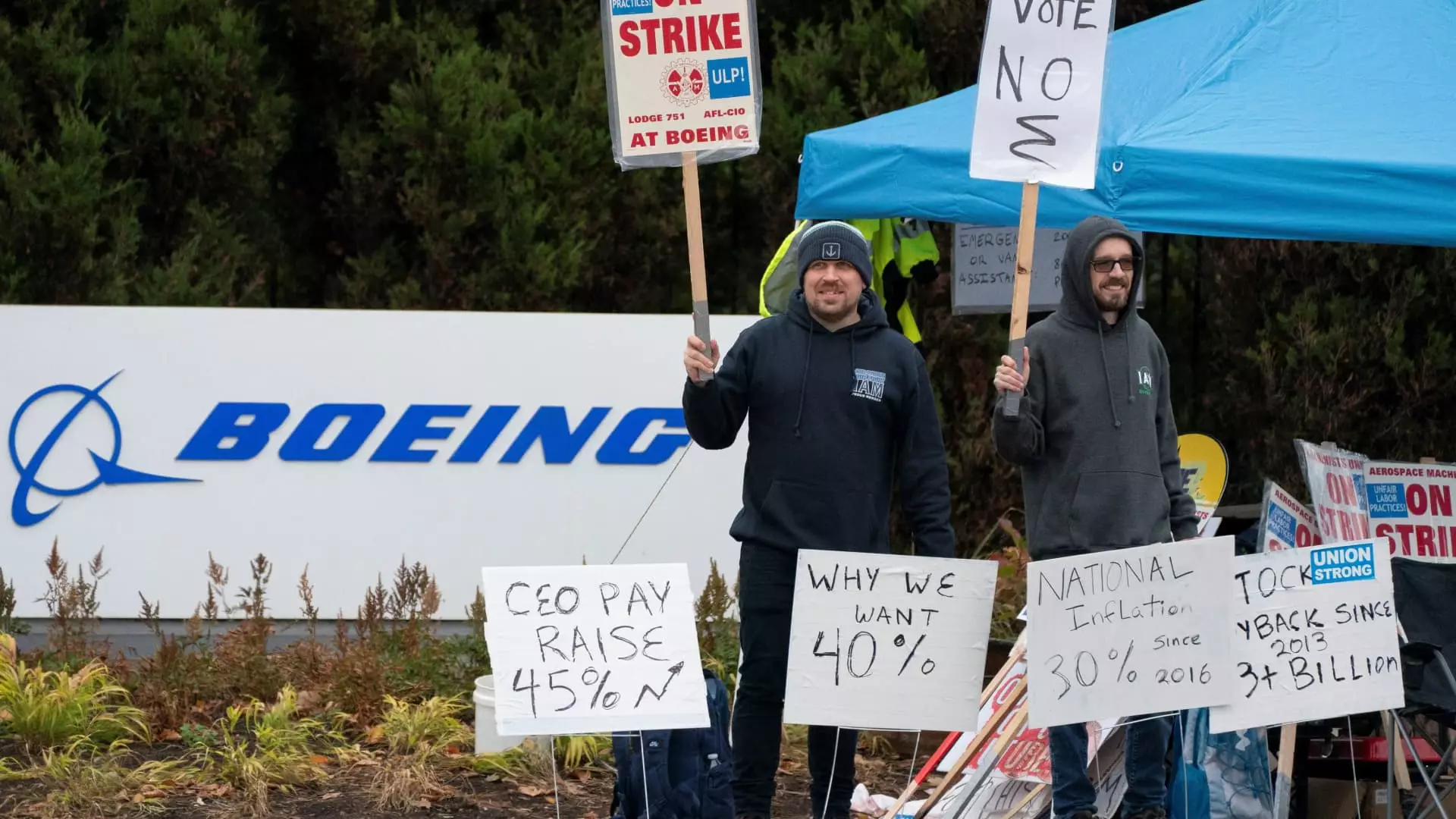In an era characterized by labor unrest and demands for fair compensation, Boeing’s machinists’ union has found itself at a pivotal crossroads. After more than seven weeks of striking—an effort to secure better wages and working conditions—the International Association of Machinists and Aerospace Workers District 751 has presented a new contract proposal to its members. A vote is set to take place soon, indicating a potential shift in the dynamics of labor relations at Boeing, a powerhouse in the aerospace field with significant global implications.
The strike, which began mid-September, was triggered by workers’ rejection of a tentative agreement. The growing dissatisfaction among the machinists not only highlights their struggle for fair compensation but also reflects a broader narrative of working-class movements advocating for their rights amid rising living costs. As Boeing faces a crisis in production, the urgency to resolve this strike has never been greater, with escalating pressures from both the company’s bottom line and national interests in manufacturing stability.
In the new proposal, the union has boosted wage increase offers from 35% to a coveted 38% over four years, with compounding increases bringing the total to almost 44%. Moreover, Boeing has introduced flexible compensation options, including a one-time ratification bonus of $12,000 or the choice of a previous offer that included a $7,000 bonus alongside a $5,000 contribution to 401(k) plans. These offerings signify a strategic push from Boeing to bring its workforce back to the assembly lines, crucial for the company’s recovery.
Workers are increasingly aware of their value, especially as the cost of living in the Seattle area swells due to nearby tech giants’ burgeoning employment figures. The dissatisfaction regarding compensation highlights the growing gap between employees’ financial needs and corporate revenues. Despite lucrative contracts on the table, anxieties over future negotiations linger, as unwarranted concessions could undermine already hard-won benefits.
The strike’s ramifications extend far beyond Boeing’s factory gates, drawing attention from governmental leaders, including President Joe Biden. In light of these negotiations, Biden reiterated the need for strong contracts that reflect the sacrifices made by workers over the years. His administration’s involvement underscores the importance of labor stability within the context of national economic performance, particularly as Boeing plays a critical role in U.S. exports and job creation.
While the negotiations are ongoing, the consequences of the strike have already been felt, affecting employment figures that are critical during an election season. The complexity of these dynamics can create ripples throughout the American economy as affected jobs have broader implications on production, supply chains, and even global commerce.
Despite the new proposals on the table, the specter of past grievances looms large. Boeing’s decision to relocate 787 Dreamliner production to South Carolina, particularly in a non-union factory, remains a sore point for union members and symbolizes the ongoing struggle for job security in an era of corporate globalization. Additionally, persistent safety concerns have marred Boeing’s reputation and have further exacerbated workers’ concerns over compensation and job security.
Negotiations are often fraught with tension, and amidst the pressure to finalize a deal, the return to the assembly lines would signify a critical turning point. Workers are cognizant of the risks posed by prolonged strikes, which could lead to diminished negotiating power in the future.
The outcome of Boeing’s latest negotiations could set a precedent not just for the machinists but for labor relations across other industries facing similar challenges. The balance of power between corporations and their employees is more crucial than ever, especially in increasingly polarized economic climates. As Boeing navigates through turbulent times characterized by economic strain and labor strife, the upcoming decisions made by its workforce could catalyze a much-needed reflection on the values of fair labor practices in America today. With collaboration and sound negotiation strategies, both Boeing and its employees have the potential to forge a path toward sustainable growth and mutual respect in the workplace.


Leave a Reply